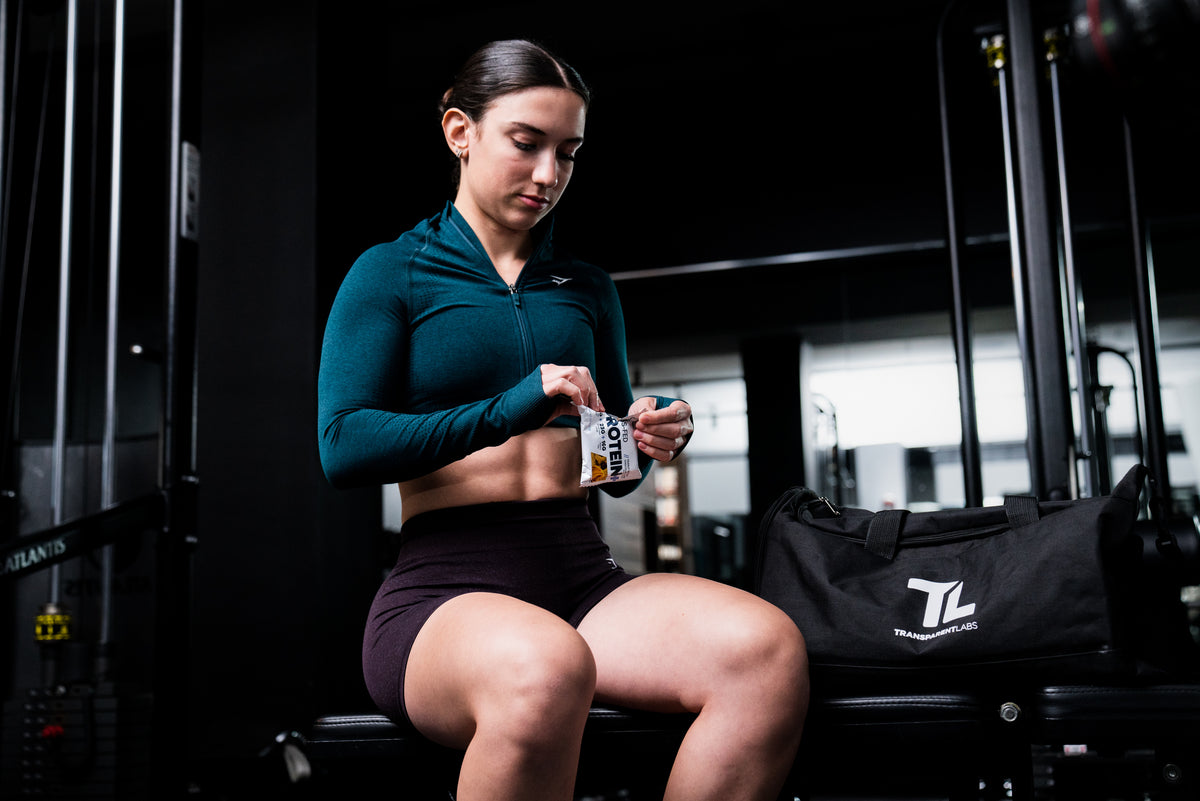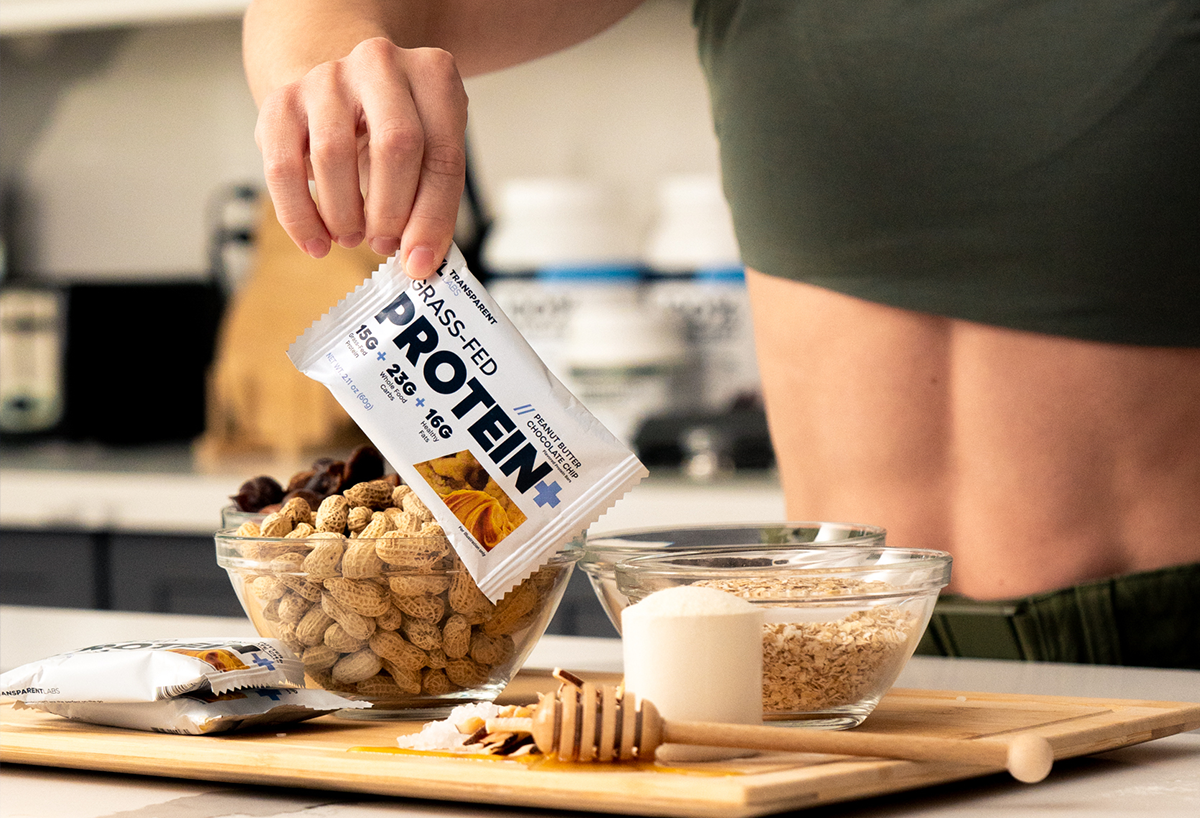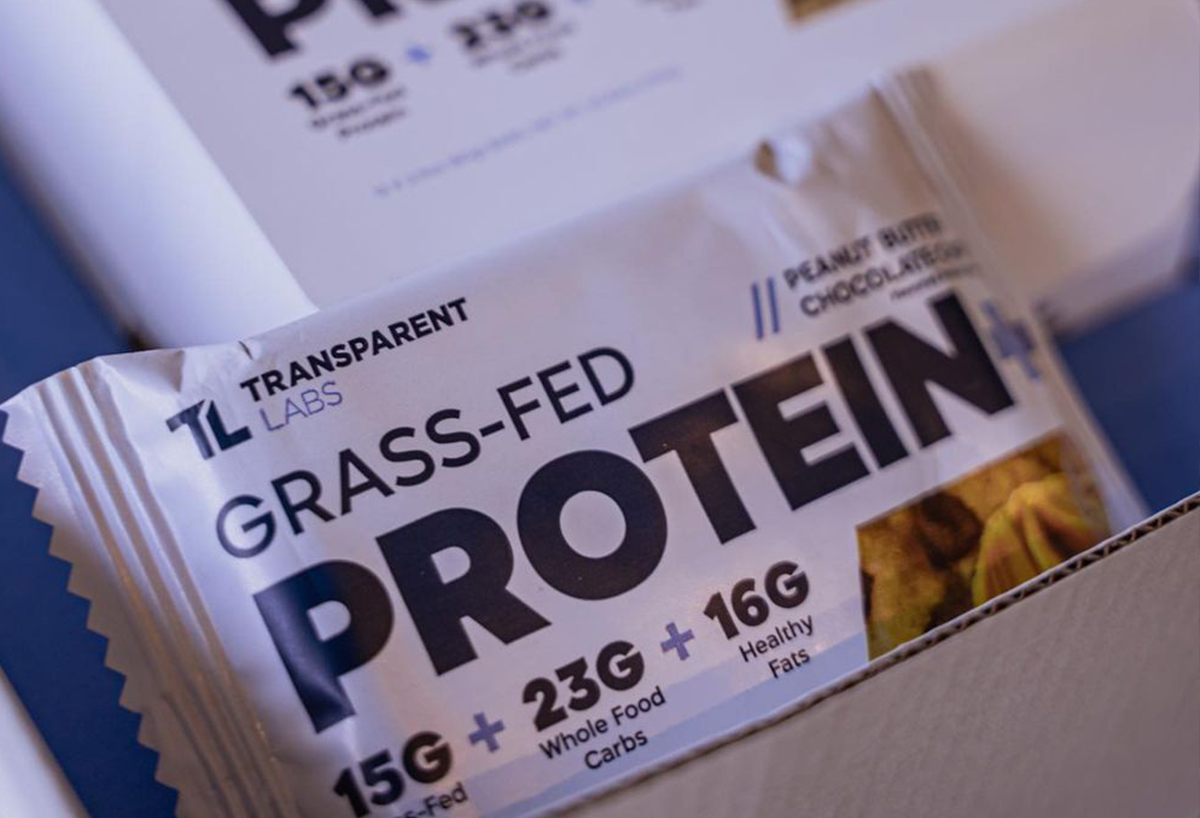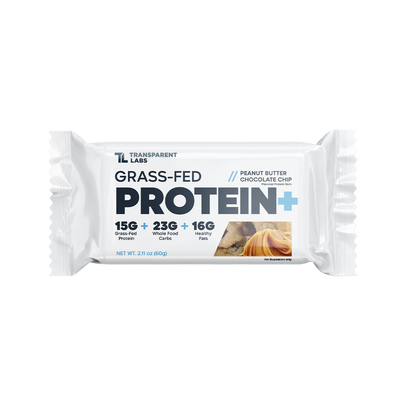When Should You Eat Protein Bars? (For Maximum Benefit)

Out of all the healthy snacks out there, a quality protein bar is one of the best options you can supplement your diet with. And that's especially true if your goal is to build muscle, lose fat, or simply eat more protein.
Your health goals will help you determine when is the best time to eat a protein bar, and when you decide to unwrap one can either help or hinder your health goals. Here's a closer look into what you need to know about protein bar timing, and what to look for in a quality bar that deserves a place in your pantry.
The Nutrition and Health Benefits of Protein Bars
Protein bars are a convenient way to get more protein, whether you're always on the go and need a portable snack or if you're just looking for an easy, tasty way to meet your daily protein goals.
They're High in Protein
The protein in bars can come from multiple sources, but the most common ones include protein powder such as whey protein isolate or concentrate, casein, or plant protein such as soy or pea protein. Alternatively, some bars get their protein from whole foods such as nuts or nut butter, seeds, egg whites, or a combo of these foods. Vegan protein bars often contain a combination of different protein sources to provide all the essential amino acids and make complete proteins.
Most protein bars contain anywhere between 10 and 30 grams of protein, so snacking on a bar can help you get extra protein in your day. Active people who engage in strength or endurance training should consume 0.5 to 0.9 grams of protein per pound of body weight daily, according to the consensus from the Academy of Nutrition and Dietetics, Dieticians of America, and the American College of Sports Medicine.
So if you weigh 150 pounds and you're active, your daily protein goal should be 75 to 135 grams. Eating at the higher end of that range can help you build and maintain muscle mass, reduce cravings and prevent overeating, and support your metabolism.
They Boast a Balanced Nutrient Profile

Protein bars provide a balanced combo of macronutrients, including protein, fats, and carbs. What's more, protein bars are often low in added sugar and fortified with fiber, vitamins, and minerals for extra nutrition. Ultimately, protein bars' nutritional profile depends on the ingredients they contain.
For example, Transparent Lab's Grass-Fed Protein+ Bars are made of unprocessed food sources such as peanut butter and whey, and they boast a well-rounded nutrient profile. One bar contains:
-
280 calories
-
16 g fat (5 g saturated fats)
-
23 g carbs (3 g fiber, 10 g sugar, 5 g added sugar)
-
15 g protein
They're Convenient and Portable
Protein bars don't traditionally require refrigeration, and because they're shelf-stable, you can toss them in your gym bag, purse, backpack, or your car's glove compartment for easy snacking wherever you go. They're easy to eat and mess-free, deeming them convenient for virtually any situation.
It also doesn't hurt that protein bars come in a variety of different, often dessert-inspired, flavors so you're sure to find one that suits your sweet tooth.
The Best Time to Eat Protein Bars
If protein bars are a mainstay in your diet, you'll want to consider your health goals and enjoy them in a way that supports your pursuits. Here's a handy breakdown that lays out the best time of day to consume a protein bar to align with certain health goals:
Before a Workout
Depending on the protein bar you choose, eating one before a workout could give you the energy you need to crush it. Generally, protein bars that contain carbs will provide you with a quick fuel source for your workout.
If you haven't eaten in a while but aren't hungry enough for a full meal, eating a protein bar 30 minutes to an hour pre-workout can spell the difference between performing at your peak and cutting your sweat session early because you're hungry. Protein bars often contain a good balance of carbs and fats, two nutrients that help sustain energy.
But watch out for fiber in protein bars: Consuming too much fiber pre-workout isn't a good idea, as it can contribute to digestive issues such as gas, bloating, and overall discomfort, according to the American Council on Exercise. Still, fiber is a very important nutrient for heart and gut health, so save it for after your workout.
After a Workout
Contrary to bodybuilder lore, eating protein right after a workout won't necessarily translate to more gains. The so-called anabolic window has been dispelled, as research shows that your total daily protein intake likely matters more than when you eat protein, per Georgia State University.
Still, it doesn't hurt to nosh on a protein bar after your workout. Preliminary research in the 2021 issue of Foods shows that eating a high-protein bar after a workout can help support muscle recovery from exercise-induced damage.
As a Snack in Between Meals
If you find your belly grumbling and you don't have time to grab a healthy meal, that's a good time to reach for a protein bar. The high protein content will help hold you over until your next meal and prevent you from choosing a less-than-ideal snack when your decision-making skills are tested by hunger.
But that shouldn't give you the green light to replace meals with protein bars on the regular. Doing so can cause you to miss out on certain nutrients you'd get from natural, whole, unprocessed foods.
Here are some scenarios where it would be smart to choose a protein bar over a convenient, less-nutritious snack:
-
Instead of stopping for fast food, opt for a protein bar when you're on the road.
-
Grab a protein bar to refuel during a hike or bike ride.
-
Choose protein bars over typical plane snacks like cookies and chips while traveling.
-
Have a protein bar handy for quick, healthy snacking between long work meetings.
-
Fuel your study sessions with protein bars for sustained energy levels and focus.
When You're Craving Something Sweet
Sometimes, you just can't shake that sweet tooth. While it's A-OK to succumb to a slice of cheesecake or a bowl of ice cream in moderation, having dessert too often can add calories to your day and contribute to fat gain over time. Instead of doing dessert every night, try reaching for a protein bar as an alternative.
Many bars come in scrumptious flavors such as peanut butter chocolate chip, cookie dough, and brownie — plus they're significantly less caloric than their sugar-laden counterparts.
Pro tip: Microwave your protein bar for 10 seconds for a gooey treat that'll satisfy any confection craving.
How to Choose the Right Protein Bar According to Your Health Goals

With so many protein bars on the market, it can be difficult to choose the perfect one — and that's when you need to consider your specific dietary needs and health and fitness goals. Depending on what you're trying to achieve, you'll want to scan the nutrition label and ingredient lists.
Here are a few pointers to help you make the decision based on certain health goals:
Muscle Gain
If your goal is to build lean muscle mass and get stronger, look for a protein bar where most of its calories come from protein. That's because eating protein helps spur muscle growth by stimulating muscle protein synthesis, the process in which the body uses amino acids to build and repair muscle fibers.
If you're trying to bulk up, you would benefit from a bar that's higher in calories. While most protein bars on the market contain anywhere from 150 to 400 calories, choosing a bar in the higher calorie range can help you gain weight, if that's your goal. Usually, these extra calories come from protein but also from fats and carbs. Many bulking bars often contain maltodextrin, a type of sugar that provides you with quick energy.
Weight Loss
Ultimately, weight loss boils down to using more calories than you consume. You can achieve this by either burning more calories or eating less (i.e. being in a caloric deficit). Either way, protein bars can help you in your weight loss journey if you're smart about the type you choose. Aim for a protein bar that contains minimal fats and carbs and contains the majority of its calories from protein.
Protein is the most satiating macronutrient of all, and research consistently shows that eating a high-protein diet can support weight loss by increasing gut-derived hormones that help reduce appetite, per a 2020 study in the Journal of Obesity & Metabolic Syndrome.
Also important to note: You'll want to use protein bars as a replacement for other, less nutritious snacks. Adding protein bars to your day without swapping something else out could result in adding more calories to your day too, which can eventually contribute to weight gain.
Instead of eating protein bars in addition to your normal diet, think about which carb- or fat-rich snacks you usually eat and consider replacing them with a high-protein bar to help keep you fuller for longer.
Blood Sugar Management
Having a protein bar as a snack or meal replacement can help stabilize blood sugar and prevent spikes and crashes, which is especially helpful for people with diabetes or insulin resistance. If you're looking for a bar that will help manage your blood sugar levels in between meals, choose one that's lower in carbs and contains some fiber and healthy fats.
The Bottom Line
The best time to eat protein bars ultimately depends on your health and fitness goals. For example, if you're trying to gain muscle, you may want to eat a bar as a post-workout snack to help with muscle recovery. If your goal is to lose weight, you may consider replacing some of your go-to lower-protein snacks with a bar to help increase your total daily protein intake and help curb cravings.
Depending on your personal dietary needs, you might consider a bar that's free of gluten, dairy products, or added sugars.
Either way, these nutrition bars can provide a quick protein fix on the go, and help you meet your protein goals more easily — especially if you live a busy lifestyle.









